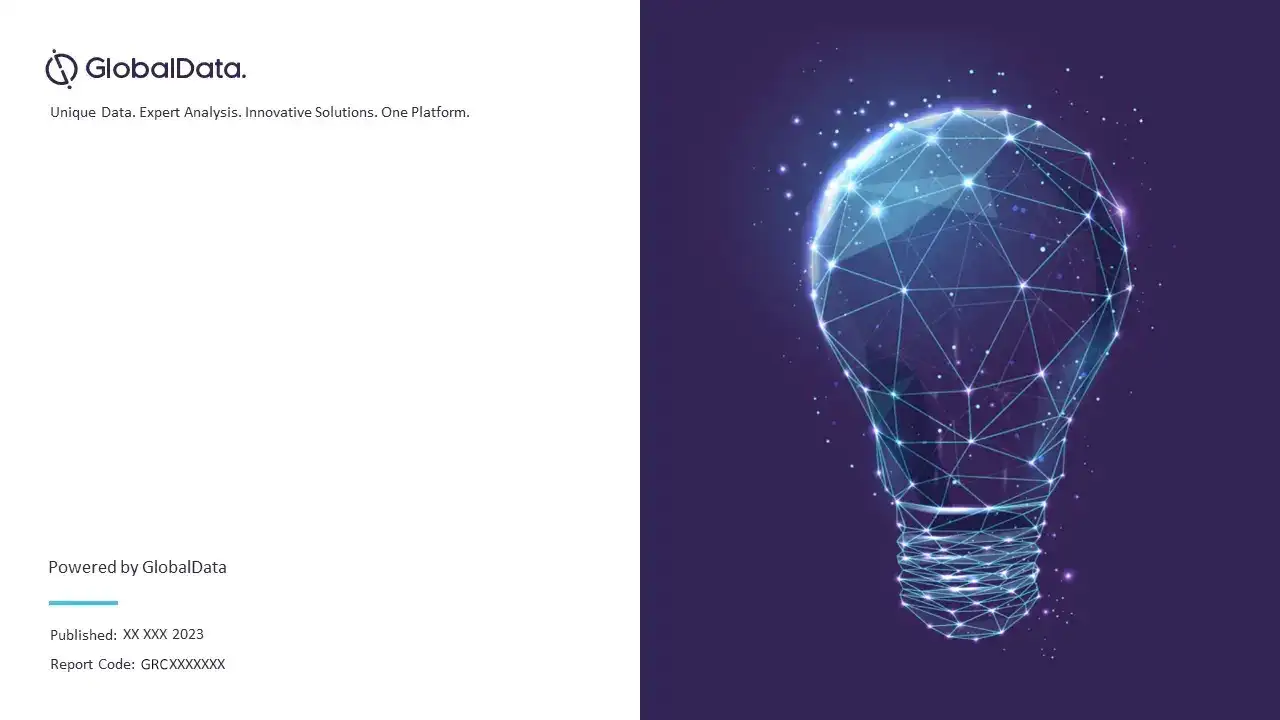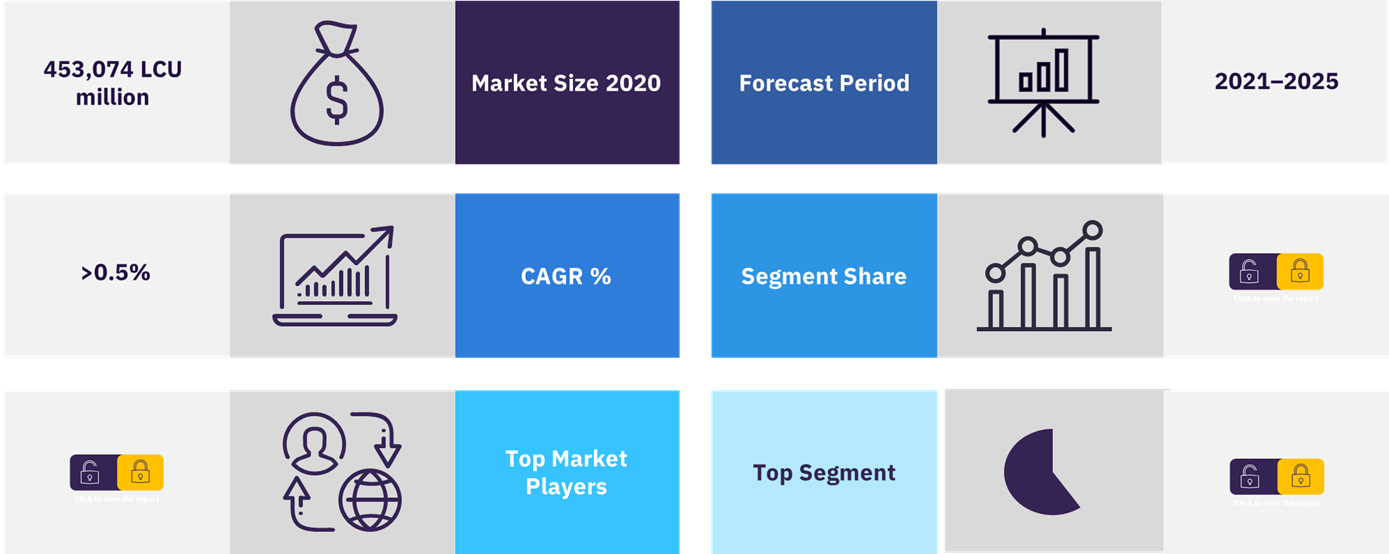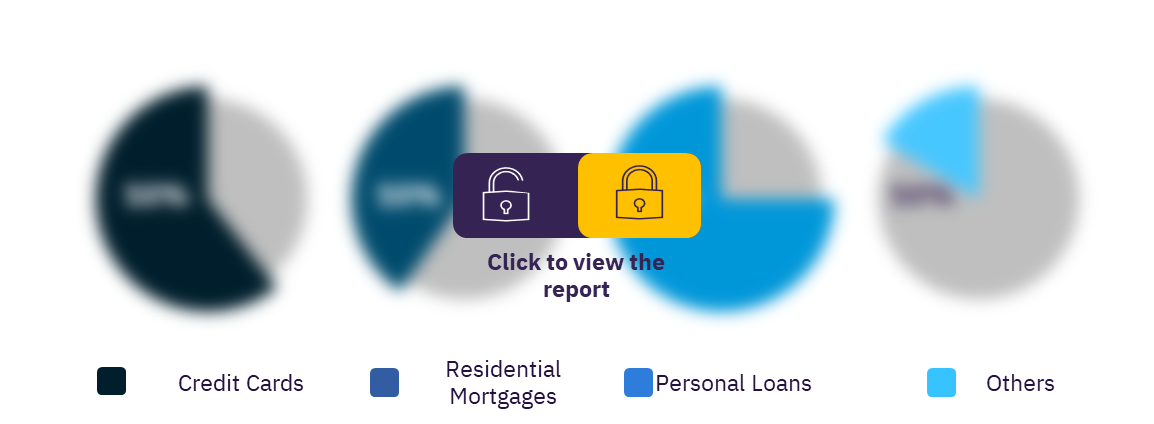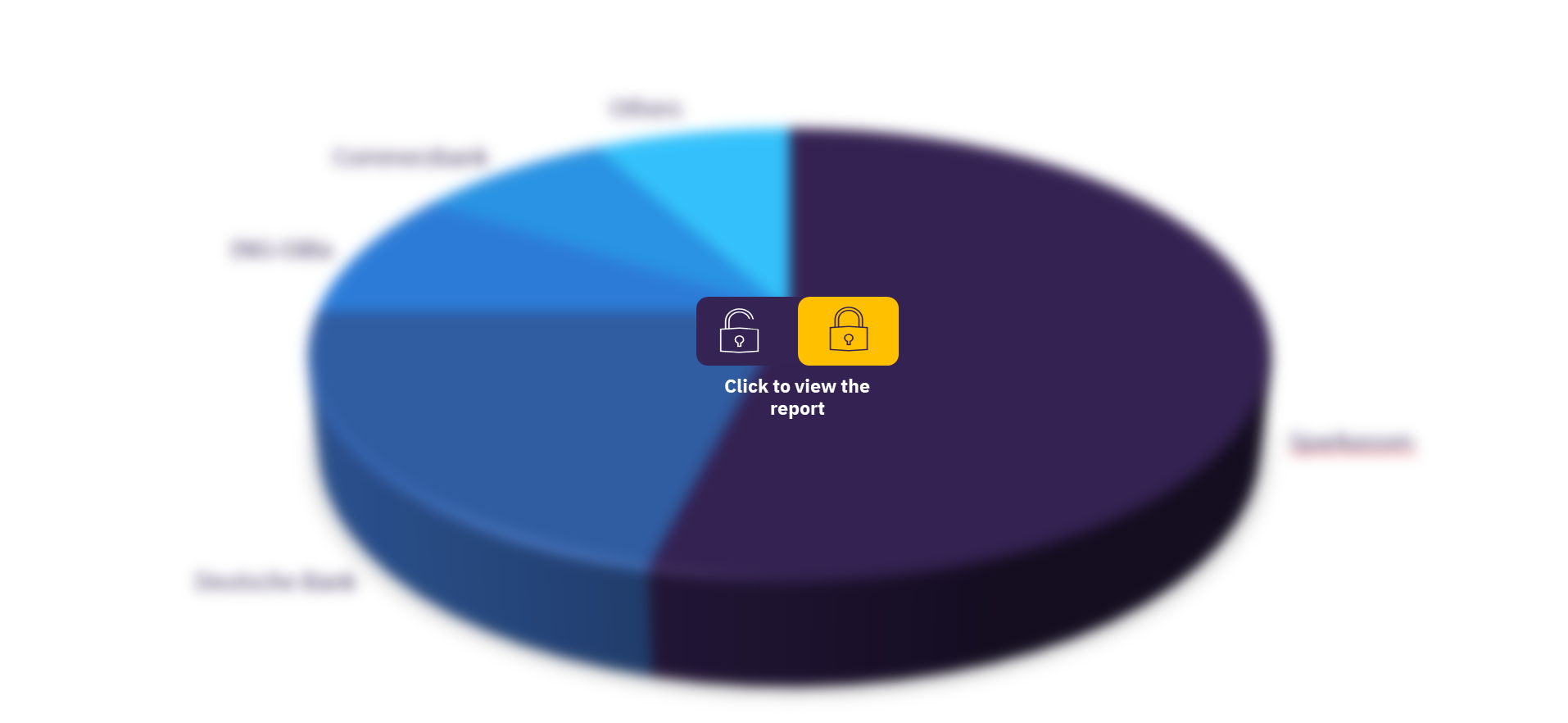Germany Retail Banking Country Report
Powered by ![]()
All the vital news, analysis, and commentary curated by our industry experts.
The outstanding balances of personal loans in Germany was valued at 453,074 LCU million in 2020. The personal loans market is projected to grow at a CAGR of more than 0.5% during the period 2021-2025. The segments in the retail banking market in Germany include residential mortgages, retail deposits, credit cards, and personal loans. The German property market is expected to grow during 2020-2025 at a CAGR of more than 5% and credit cards at a CAGR of more than 3% (significantly higher than Germany’s comparable countries).
The slower forecast growth has been impacted by government restrictions and the hesitancy to use credit cards, with many German consumers now shifting to new spending behavior and saving much more rather than spending. Overall, the efficiency of German banks is declining, as shown by rising average cost-to-income ratios (CIRs). Furthermore, the profitability of German banks declined in 2020 due to increasing COVID-19-related costs, but this trend was already in effect before the pandemic due to poor revenues. As a result, German banks’ CIRs have shown significant increases between 2015 and 2020. German attitudes towards alternative banking show that consumers are showing more willingness to trust alternative providers. Younger German customers prefer alternative providers, with the most significant driving factors being around rates/rewards, security, and better digital functionality.
Overview of the retail banking market in Germany
For more insights on this report, download a free report sample
What are the market dynamics in the German retail banking market?
Germany’s economic growth has shown signs of volatility as the economy came close to a recession in 2019 and then shrank rapidly in 2020 amid the impact of the coronavirus pandemic. Despite the effects of COVID-19 on the economy, 2021 has seen some economic recovery as the German housing market has witnessed a significant increase in property prices. Despite the global pandemic, Germany’s long-running house-price boom continues strong, predominantly driven by low-interest rates, weaker construction supply, and the increased demand from more than 1 million refugees.
The rapid rise of technology and digitalization has intensified competition in financial services. It has boosted customer expectations, which in turn has reinforced pressure on traditional banks to adapt and innovate. There is pressure on banks to adapt to digitization to improve their offerings, but new trends around the globe have shaped the cybersecurity of the retail banking sector. The emerging trends around security involve the enhanced adoption of AI, which plays a crucial role in defending against cyberattacks, especially when hackers implement AI methods that make cyberattacks more challenging to detect. Furthermore, AI plays a pivotal role in fraud detection and prevention in the banking and payments space. Overall, since AI can analyze massive amounts of data faster and flag unauthorized usage, it can play a significant role in helping secure the fintech domain as more and more groundbreaking technologies enter and disrupt the sector. Therefore, AI would positively impact security among larger banks. In addition, AI can help boost revenues through the increased personalization of services to customers, reduce costs through efficiencies generated by higher automation, and improve error rates
What are the segments in the retail banking market in Germany?
Residential mortgage market in Germany
Germany’s economic growth has shown signs of volatility as the economy came close to a recession in 2019 and then shrank rapidly in 2020 amid the impact of the coronavirus pandemic. Despite the effects of COVID-19 on the economy, 2021 has seen some economic recovery as the German housing market has witnessed a significant increase in property prices. Despite the global pandemic, Germany’s long-running house-price boom continues strong, predominantly driven by low-interest rates, weaker construction supply, and the increased demand from more than 1 million refugees.
Retail deposit market in Germany
As with similar trends across Europe, German consumers saved a substantial amount due to the lockdown measures put in place by the German government. Since last year, Germany’s biggest lenders, Deutsche Bank and Commerzbank, told new customers to pay a 0.5% annual rate to keep larger sums of money. The banks state that they can no longer absorb the negative interest rates the European Central Bank (ECB) charges them. However, fintech banks are addressing the negative interest rates and lack of options for retail banking customers.
Credit card market in Germany
German consumers are known for being much more debt-averse and are prominent advocates for cash compared to other Western countries. This is reflected in their use of credit cards. In the wake of COVID-19, credit card balances in Germany have been affected primarily due to consumers avoiding purchases of non-essentials such as travel and accommodation.
Personal loan market in Germany
In Germany, personal loans are not a popular product as consumers are still highly debt-adverse to even much more longer-term lending, such as unsecured personal loans for more significant purchases. As a result, the CAGR for personal loans is significantly lower than Germany’s comparable countries despite the higher household debt-to-GDP ratio in the country.
Germany retail banking market segments
For more segment insights, download a free report sample
Who are the major players in German retail banking market?
Sparkassen, Volksbanken Raiffeisenbanken, Commerzbank, Postbank, ING-DiBa, Deutsche Bank, Sparda-Bank, Comdirect and Deutsche Kreditbank (DKB) are the major players in the Germany retail banking market. Sparkassen is the market leader in the German retail banking market in the retail deposits segment. Deutsche Bank, Commerzbank, ING-DiBa, and Hypovereinsbank are among the top five banks in the retail banking market in Germany.
Sparkassen saw its share remain relatively unchanged in 2020. Deutsche Bank has seen its market share increase since 2017 with marginal growth expectations into 2021. The bank has also signed a Google Cloud partnership to enhance its product and redesign how its products and services are delivered. Earlier this year, ING launched a shopping platform with DealWise, which could bring extra value-added benefits to the current account, making it even more attractive to new customers over the next few years.
Germany retail banking market, by key players
To know more about key players, download a free report sample
Market report scope
| Personal loan outstanding balance (Year – 2020) | 453,074 LCU million |
| Personal loan growth rate | CAGR of >0.5% from 2021 to 2025 |
| Base year for estimation | 2020 |
| Segmentation by type | Residential Mortgages, Retail Deposits, Credit Cards, and Personal Loans |
| Forecast period | 2021-2025 |
| Key players | Sparkassen, Volksbanken Raiffeisenbanken, Commerzbank, Postbank, ING-DiBa, Deutsche Bank, Sparda-Bank, Comdirect and Deutsche Kreditbank (DKB) |
Scope
- German attitudes towards alternative banking show that consumers are showing more willingness to trust alternative providers. Still, at the same time, Germany has recorded the smallest shift in Europe in terms of movement to alternative providers.
- Younger German customers prefer alternative providers, with the most significant driving factors being around rates/rewards, security, and better digital functionality. Conversely, the two areas with the lowest respondent choices were an appealing brand image and environmental, social, and governance (ESG) alignment (6% and 5%, respectively).
- The younger German cohort uses the branch more than those aged 35 and above. Of those 18-34, the top-ranked activities for branch visitation among German respondents are account opening, applying for a mortgage, and conducting frequent banking tasks.
Reasons to Buy
- Understand and analyze trends in the German housing, deposit, and unsecured market through past and forecasted growth up to 2025 through the sector’s performance compared to other markets.
- Uncover an in-depth analysis of market shares across the leading German players while looking at the winners and losers of CIR maintenance.
- Analyze 2021 Financial Services Consumer Survey data by looking at new consumer preferences and behaviors that have emerged while analyzing the key survey highlights.
- Assess critical data points for customer retention and future customer acquisition through three core areas in banking: financial services provider preference and movements, digital and alternative channel preferences, and cross-selling opportunities based on tenure and satisfaction levels.
Volksbanken Raiffeisenbanken
Commerzbank
Postbank
ING-DiBa
Deutsche Bank
Sparda-Bank
Comdirect
Deutsche Kreditbank
Klarna
N26
Table of Contents
Figures
Frequently asked questions
-
What is the outstanding balance for the German retail banking market in 2020?
The outstanding balances of personal loans in Germany was valued at 453,074 LCU million in 2020.
-
What is the growth rate of the personal loans segment in the German retail banking market?
The personal loans segment in the retail banking market in Germany is projected to grow at a CAGR of more than 0.5% during the period 2021-2025.
-
What are the key segments in the German retail banking market?
The key segments in the retail banking market in Germany include residential mortgages, retail deposits, credit cards, and personal loans.
-
Who are the key players in the German retail banking market?
Sparkassen, Volksbanken Raiffeisenbanken, Commerzbank, Postbank, ING-DiBa, Deutsche Bank, Sparda-Bank, Comdirect and Deutsche Kreditbank (DKB) are the key players in the retail banking market in Germany.
Get in touch to find out about multi-purchase discounts
reportstore@globaldata.com
Tel +44 20 7947 2745
Every customer’s requirement is unique. With over 220,000 construction projects tracked, we can create a tailored dataset for you based on the types of projects you are looking for. Please get in touch with your specific requirements and we can send you a quote.
Related reports
View more Financial Services reports












